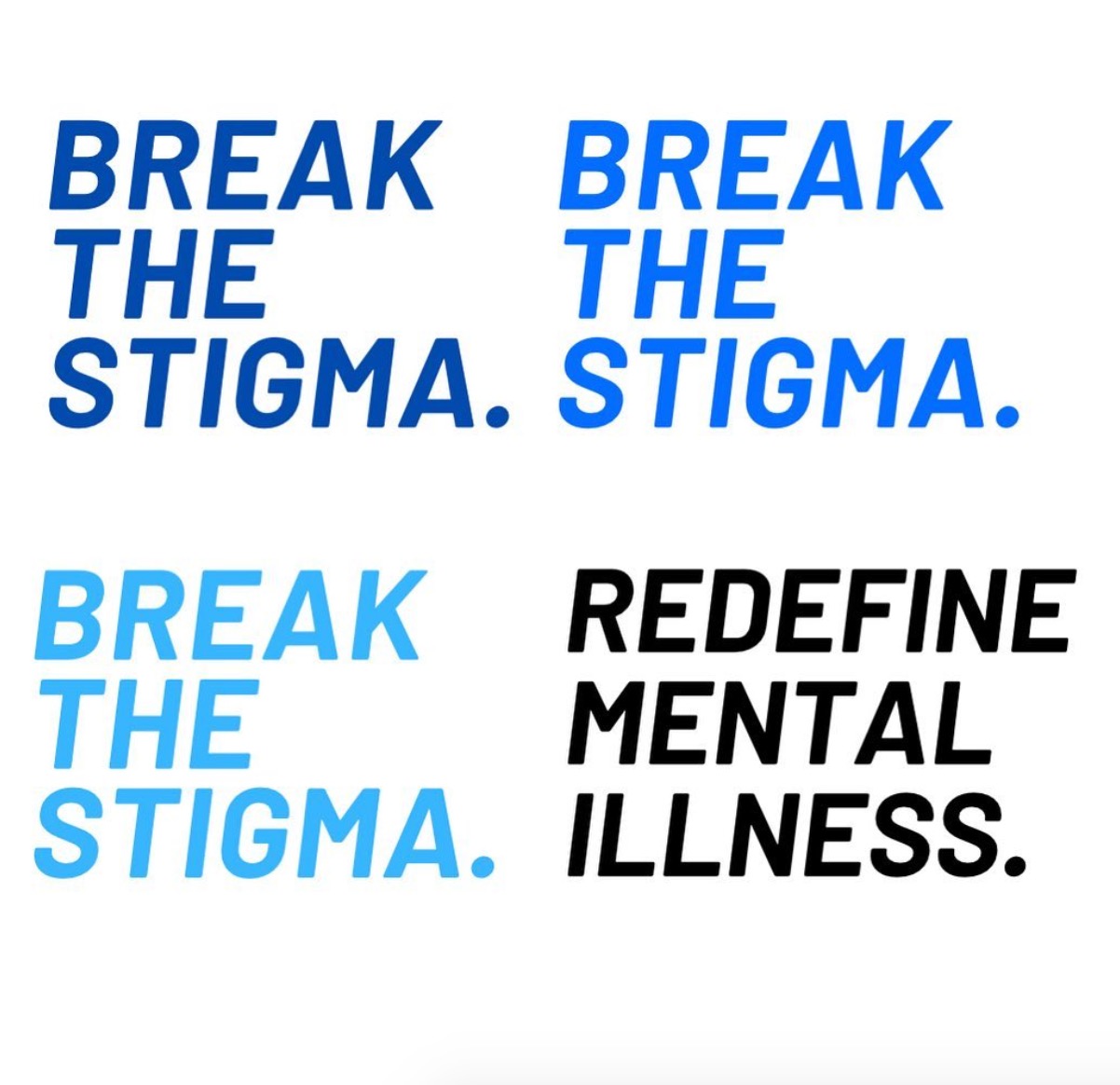During my time as a digital writer for LOOK, my most favorite articles have involved past or current SMU students who share an intense drive for their own passions. These notable students have included Elba O’Ward, Kristine Locker, Reagan Mcginnis, Sam Westfall and RaSun Kazadi. I love sharing Mustang stories, and always find myself inspired after speaking with them. Redefine Mental Illness is no different. ReMi is a group of SMU students led by Brynne Hindle, Ian Broadbent and Brady Martin with the mission to de-stigmatize mental illness, starting on our very own campus. For more information, read my interview with them below!
Why the need for ReMi?/Why was ReMi created when it was?
Ian: ReMi started back in 2018. We need ReMi because while the progress in mental health/illness awareness has grown, there is still a stigma that needs to be broken.
Brady: There is a need for ReMi because mental health on college campuses is the utmost importance. Unfortunately, a lot of us do not talk about our mental health because we’re taught that those conversations shouldn’t occur in the public sphere. But, if we want to promote the mental health of college students, we must have these conversations.
What does ReMi do?
Brynne: Our mission is to break down the stigma around mental illness and to engage the SMU community in a broader conversation about mental health. We also hold student events and work closely with faculty, especially during the pandemic, to help them be mental-health-friendly.
Ian: ReMi holds meetings, conversations, workshops and events all with the idea of starting a conversation about mental health. ReMi hopes to help people access the resources that they may have not known they could access before. In the past, we have had speakers like Kevin Hines come speak to the community. We hope to have more like him in the future.
Where would you like to see ReMi in 5 years?
Brynne: My biggest goal is for the club to really last and grow after I leave this year. I think we have a good opportunity for that with the new executive team coming up. We want ReMi to become a staple on our campus and also branch out to other colleges later on.
Ian: I really hope to see the club grow in numbers and events. I see us creating a stronger presence on campus and overall building a strong community around mental health.
Brady: In 5 years, I see ReMi being a well-known organization on campus whose events are attended by a wide variety of students. The longer that our organization is on campus, the more the conversation about mental health and mental illnesses is going to be normalized.
How does your group’s background affect the group’s mission and culture?
Brynne: We have a lot of different stories in our group. I dealt with my dad taking his own life when I was 10. Ian has dealt with depression and him being a male has been huge for us perspective-wise. We also have team members with OCD, and other diagnoses, so overall I really think the range of perspectives has been helpful to us.
Brady: All of us on the board are true advocates of mental well-being above all else. For some of us, this stems from our own challenges in life, from experiences of our family members or friends, or from educating ourselves about mental health and mental illness.
What makes ReMi different from other mental health awareness clubs?
Brynne: We make sure we are really real about mental health. One of our last posts on Instagram was about showering and basic hygiene since those concepts can really suffer from mental illness. We also want to make sure we are talking about more than just depression and anxiety. They are still important, but there is a much wider range of mental illnesses. We make sure we are authentic and talk about the depth of the bad times and how to move forward.
Brady: One of ReMi’s main goals is to not avoid difficult conversations. When mental health is talked about on social media or other platforms, we often hear about having a positive attitude but mental health is much more complicated than that. Mental health is about learning how to cope with difficult situations in a healthy way, how to practice mindfulness in your life, and understanding that mental illness is real and much more common than we think.
What do you think is missing at SMU regarding mental health?
Brynne: I notice students are excited to talk about mental health but the action part is sometimes lacking. There is clearly a need and the students definitely want it. I have had two friends here at SMU who have taken their lives, so we know students need these conversations. We just want to be a part of the taking action part of it. It really all comes down to the stigma of it.
Ian: I think SMU is lacking easy access to mental health services on campus. While the health center and organization on campus have resources, they are not marketed well. There are often a lot of barriers when trying to access them. In addition, I would love to see some form of mental health resources available at Dedman and encouragement by the facility to practice not only physical health but mental health as well.
What would you like to see SMU students do more of in regards to mental health?
Brady: I would like SMU students to talk to each other about what they do when they are feeling stressed or depressed. If we inform our peers about the best ways that we can maintain our mental health, like going outside, working out, or eating healthy, then we can promote holistic wellness.
If ReMi had no budget or financial implications what would be your first project on campus?
Brynne: We would bring in a lot more speakers for the student body and overall just have more merchandise and PR efforts to increase awareness. We would also love to have students tell their stories to the student body. We have had a lot of events with food and that tends to draw people in, but really any money would be more than what we have right now.
Ian: I would love to hire a mental health coach at the Dedman Center for Lifetime Sports. While therapy is beneficial to a lot of people, I often hear of people looking for different ways to address their mental health. By having someone who takes a different approach available to the SMU community, more people will be able to seek help that they may have been afraid to access before.
Why the name Redefine Mental Illness?
Brady: Mental illness is one of the least talked about, most stigmatized topics in our society, and it’s time that we redefine how we view this topic.
What is your best advice for SMU students going through any mental health issues right now?
Brynne: I really struggled my freshman and sophomore years. What I found is that you really have to put in the good work. Developing a routine is crucial. A plan for when you are not feeling good is also essential. Little ways to make your day more pleasant is also important.
Ian: I think the best thing is to be active. Go to the gym, run the Katy trail or simply go for a walk around campus. It’s always important to remember that physical health plays an important factor in your mental health.
Brady: Nothing, absolutely nothing, is more important than your mental health. Your exams, your grades, your social life, your future career do not matter if you are struggling mentally. You must prioritize self-care and then from there you will be prepared to approach any external challenge with determination and in a healthy manner.
What is your favorite mental health mantra?
Brynne: You are not your thoughts. I am capable of stopping the thoughts I do not like.
How can SMU students help your mission or get involved?
Ian: I think overall speaking up about your struggles, whether publicly or privately with close friends, will do wonders for this campus. While a lot of students on campus are already speaking up, I think they’re a lot more people out there that are struggling and waiting to see more people speak up before they do.
Brady: SMU students can join our peer discussions or participate in our campus-wide advocacy events, many of which are coming up this semester.
Brynne: We have meetings monthly for our club and the executive team meets bi-weekly (the new exec team will be chosen this coming up in April if anyone is interested). Follow us on Instagram @redefiningmentalillness and stay posted on what will be coming soon!
ReMi, Thank you for sharing your inspiring mission with me!







